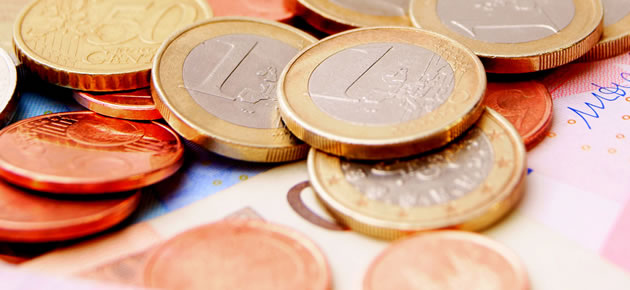Last week saw the single currency take a bit of a pasting against the Pound following the release of a number of positive economic data releases for the UK and as Eurozone data cast further doubt over whether the currency bloc’s recovery was even still alive.
At the start of the week the currency softened against Sterling after European Central Bank governing council member Ardo Hansson said that the bank was ready to make further cuts to interest rates and was “technically ready” to implement negative deposit rates.
Despite its weakness against the Pound the Euro did manage to make gains against the US Dollar and other currencies such as the Japanese Yen. The single currency managed to shrug off dovish remarks by another European Central Bank board member. This time policy maker Benoit Coeure said that negative deposit rates are still a possibility.
Midweek the Euro made further gains against the safe haven Yen and ticked higher against the Swiss Franc after Germany finally managed to agree to the formation of a coalition government. Following a night of intense negotiations Angela Merkel’s Christian Democrats reached an accord with the Social Democratic Party after reaching deals on issues such as a minimum wage and tax increases. Further gains are unlikely after data out of France and Spain came in below forecasts. France in particular is of growing concern due to its increasing signs of weakness; it now looks likely that the country could slip back into recession.
As the session progressed the single currency took a battering against the Pound due to the publication of positive UK GDP data which bolstered demand for the UK currency. The Pound pushed above the 1.20 mark as a result the Euro’s lowest level since January.
The Euro did manage to make a brief reprieve against the Pound thanks to positive inflation data out of Germany and as Eurozone business and consumer confidence data matched economist forecasts.
As the week drew to a close the single currency made a third monthly gain against the US Dollar after the currency found some support from news that credit ratings agency Standard & Poor’s raised Spain’s credit rating from negative to stable. It lost some ground later in the session however as German retail sales came in below forecasts and consumer spending fell in France.
Looking to the week ahead the Euro is likely to weaken further against the Pound if this week’s UK data continues to show improvement. Sterling has now breached the 1.20 level to trade in the region of 1.21. The most important day for the Euro will be Wednesday due to the release of the currency bloc’s latest GDP, PMI and retail sales data.
Key Euro data for the week ahead:
Tuesday December 3rd – Spanish unemployment data, Eurozone PPI
Wednesday December 4th – Eurozone Markit services and composite PMI, Eurozone GDP, Eurozone Retail sales
Thursday December 5th – ECB interest rate decision, ECB monetary policy statement
Friday December 6th – French balance of trade, German factory orders
Euro (EUR) Exchange Rates
As of 12:00 pm GMT
The Euro/US Dollar Exchange Rate is currently in the region of: 1.3538
The Euro/Pound Sterling Exchange Rate is currently in the region of: 0.8261
The Euro/Australian Dollar Exchange Rate is currently in the region of: 1.4809
The Euro/ New Zealand Dollar Exchange Rate is currently in the region of: 1.6508
The Euro/ Canadian Dollar Exchange Rate is currently in the region of: 1.4406
The Euro/ Japanese Yen Rate Exchange Rate is currently in the region of: 139.1980
The Euro/Swiss Franc Exchange Rate is currently in the region of: 1.2322
The Pound Sterling/ Euro Exchange Rate is currently in the region of: 1.2101
The US Dollar/Euro Exchange Rate is currently in the region of: 0.7387
The Australian Dollar/Euro Exchange Rate is currently in the region of: 0.6752
The New Zealand Dollar/Euro Exchange Rate is currently in the region of: 0.6057
The Canadian Dollar/Euro Exchange Rate is currently in the region of: 0.6943
Swiss Franc/Euro Exchange Rate is currently in the region of: 0.8115



